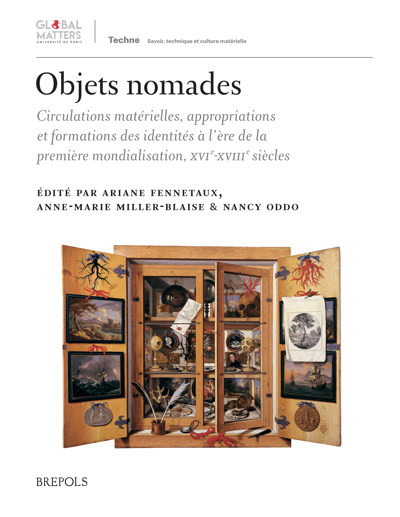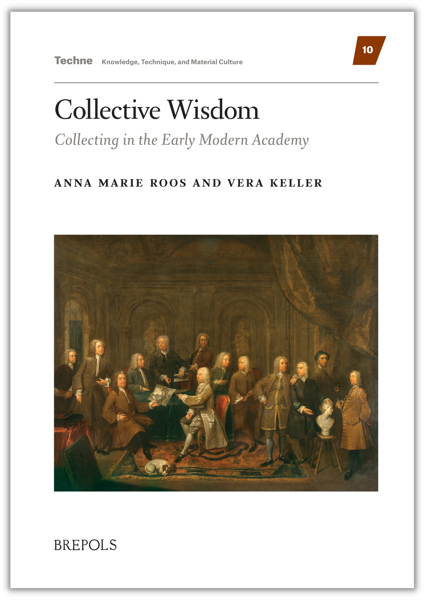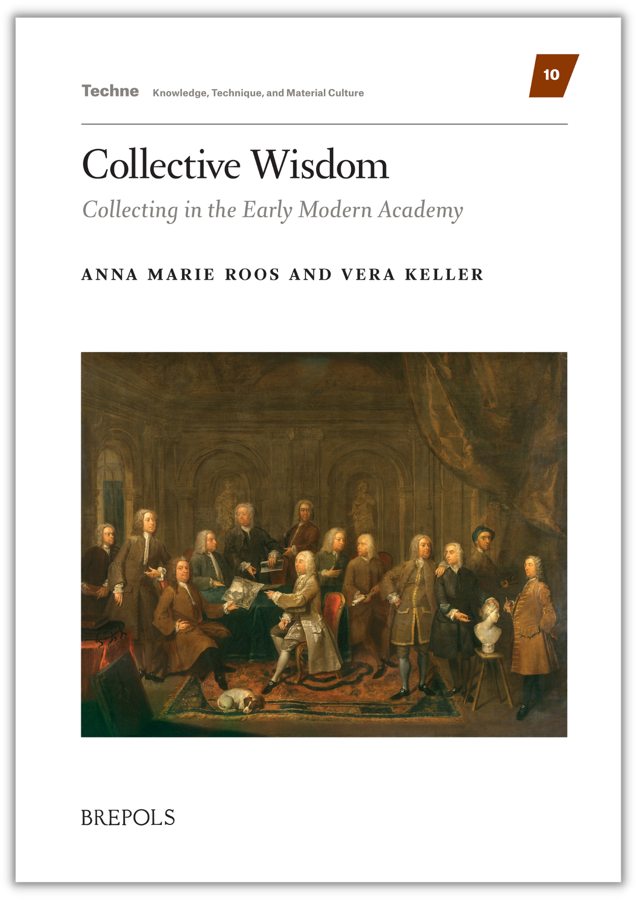
- Pages: 325 p.
- Size:178 x 254 mm
- Illustrations:51 col.
- Language(s):English
- Publication Year:2022
- € 85,00 EXCL. VAT RETAIL PRICE
- ISBN: 978-2-503-58806-3
- Hardback
- Available
- € 85,00 EXCL. VAT RETAIL PRICE
- ISBN: 978-2-503-58807-0
- E-book
- Available
Collective Wisdom analyses the connections between early modern scholarly societies and to what extent these networks shaped the formation of early museums and the categorisation of knowledge.
“This fine collection of essays is a welcome addition to the literature on early modern scholarly collections. We are hardly the first generation to rediscover the forgotten collections that contain the building blocks of earlier knowledge-making practices. Collective Wisdom emphasizes the collaborative efforts of early modern scholars to present knowledge to various publics, and wryly observes the challenges of transforming utopian dreams of knowledge into useful realities.” (Paula Findlen, in Journal of the History of Collections, 28/1, 2023)
“Essays in this volume thus engage with the theme of »collective wisdom« on different levels, and present new research on understudied aspects of academies, including less well-known groups and their collections. It would be of interest to historians of science, academies and collecting.” (Sachiko Kusukawa, dans Francia-Recensio, 3, 2023)
“Collective Wisdom provides a multifaceted approach to the way learned academies formed and interacted with their collections. It not only adds an excellent reference for specialists in the field, but is presented in a way that maintains accessibility for undergraduate and postgraduate students. Chapters, read individually or collectively, offer excellent case studies that emphasise the role of collecting in the development of scientific education and communities. Most importantly, the contributors to Collective Wisdom present a variety of insightful analyses that push collections-based scholarship forward, and are sure to encourage future consideration of these and similar repositories.” (Madeline White, in Early Science and Medicine, 29, 2024, p. 208)
“Overall, this volume skilfully maps out a history that remains directly relevant to contemporary questions in the use of history-of-science collections specifically and museum collections in general. (…) Whether or not we choose to learn from the useful insights contained in this volume remains to be seen.” (JC Niala, in British Journal for the History of Science, 2024)
"The historian of technology will find many points of interest: besides the discussions of technical objects (...) or technical processes (...), the contributions shed light on a series of technologies of knowledge management in those learned societies." (Aurélien Ruellet, in Technology and Culture, 65(3), 2024)
"While being a noteworthy addition to the literature on the history of collecting, this edited volume also provides readers with meaningful insight into the challenges as well as opportunities that 'thinking with objects' in public collections might create." (Elena Maria Rita Rizzi, in Nuncius, 39(2), p. 549)
Anna Marie Roos FLS FSA is the Professor of the History of Science and Medicine at the University of Lincoln (UK).
Vera Keller is Professor of History at the University of Oregon.
This volume analyses how and why members of scholarly societies such as the Royal Society, the Society of Antiquaries of London, and the Leopoldina collected specimens of the natural world, art, and archaeology in the seventeenth and eighteenth centuries. These scholarly societies, founded before knowledge became subspecialised, had many common members. We focus upon how their exploration of natural philosophy, antiquarianism, and medicine were reflected in collecting practice, the organisation of specimens and how knowledge was classified and disseminated. The overall shift from curiosity cabinets with objects playfully crossing the domains of art and nature, to their well-ordered Enlightenment museums is well known. Collective Wisdom analyses the process through which this transformation occurred, and the role of members of these academies in developing new techniques of classifying and organising objects and new uses of these objects for experimental and pedagogical purposes.
Vera Keller and Anna Marie Roos, Introduction
Kelly J. Whitmer, Putting Play to Work: Collections of Realia and Useful Play in Early Modern Educational Reform Efforts
Chantal Grell, Tito Livio Burattini, a Seventeenth-Century Engineer and Egyptologist
Georgiana Hedesan, University Reform and Medical Alchemy in Ole Worm’s Museum Wormianum (1655)
Fabien Krämer, The Curiosi as Collectores: The Publications of the Academia Naturae Curiosorum, c. 1652–1706
Vera Keller, Vernacular Knowledge, Learned Medicine, and Social Technologies in the Leopoldina, 1670–1700, or, How to Publish on Sirens, Dragons, and Basilisks
Philip Beeley, ‘The Antiquity, Excellence, and use of Musick’: Wallis, Wanley, and the Reception of Ancient Greek Music in Late Seventeenth-Century Oxford
Julia A. Schmidt-Funke, Urban Fabric and Knowledge of Nature: Physicians as Naturalists in Early Modern Commercial Towns
Kim Sloan, Sloane’s Antiquities: Providing a ‘Body of History’ through Beads, Bottles, Brasses and Busts
Dustin Frazier Wood, Antiquarian Science and Scientific Antiquarianism at the Spalding Gentlemen’s Society
Anna Marie Roos, The First Egyptian Society
Louisiane Ferlier, Collective Wisdom in the Digital Age: Digitizing Early Modern Collections at the Royal Society




